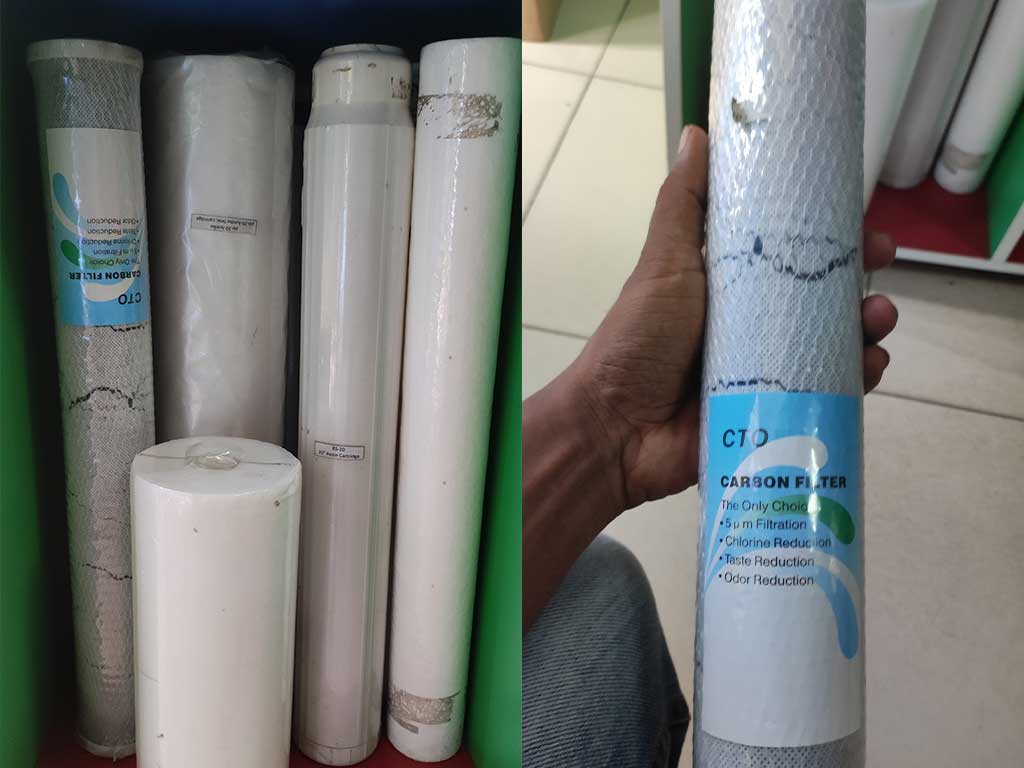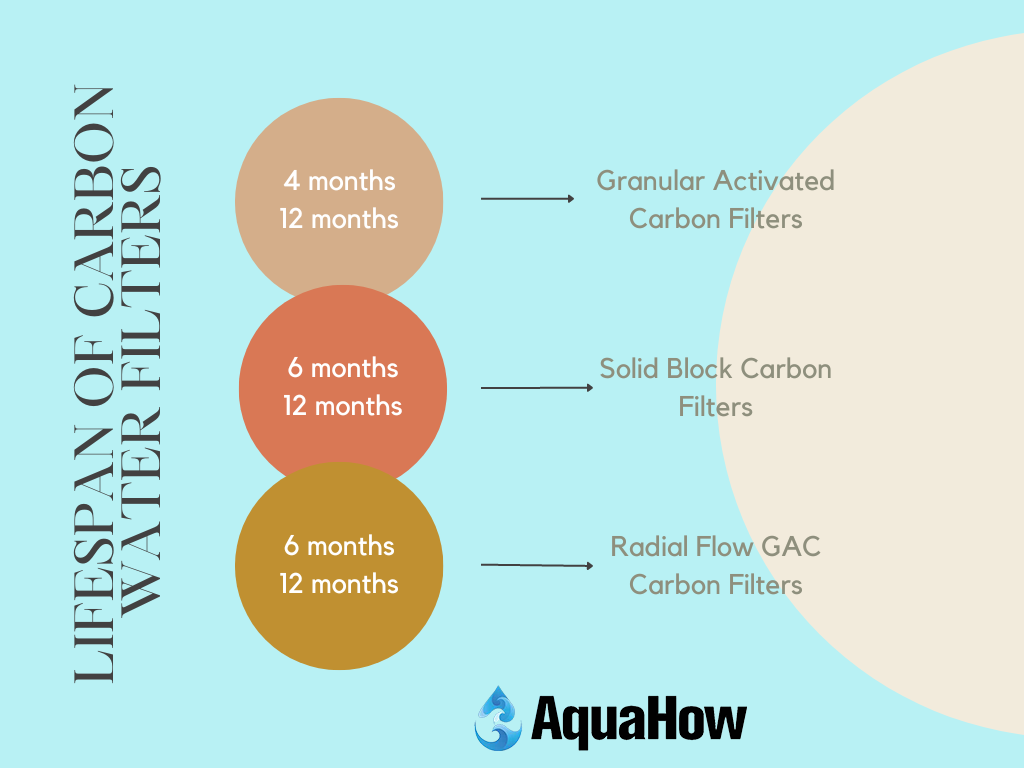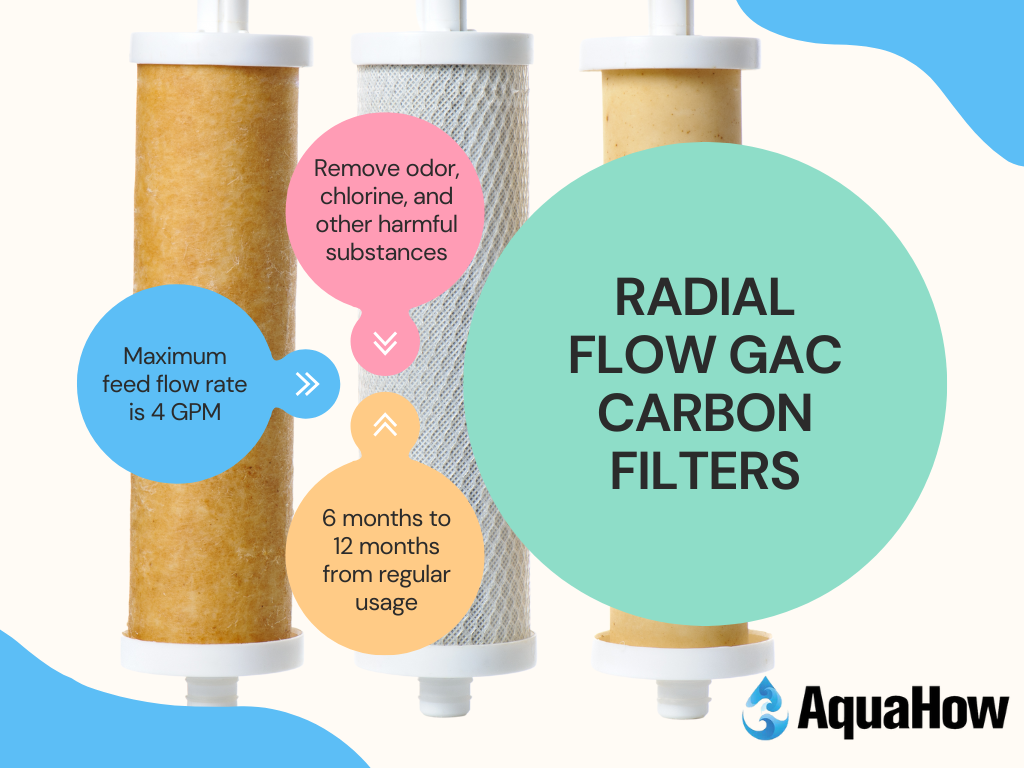A carbon water filter can be crucial in decreasing chlorine and other substances in the water. But changing the water filter on time is vital to ensure clean and safe water.
How Long Does A Carbon Water Filter Last?
The average lifespan of a carbon water filter can be anywhere from 4 months to 24 months, depending on its type, carbon particles, using frequency, humidity, and brand.
Carbon water filters reduce various harmful substances from the tap water and make the water clean and healthy.
The life expectancy of a carbon water filter depends on several factors.
Different Carbon Particles
It is slightly hard to reduce pelletized particles than granulated particles.
Hence, the more pelletized particles your water contains, the sooner you need to replace the carbon filter.

Filter’s Density
A carbon filter with increased density can capture more substances.
The membrane efficiency can be increased by 30% to 40%.
However, intense filtration or clarification will make the carbon water work harder. You will have to change the filter more quickly.
Water Hardness level
Tap water may have a Water hardness level below 75 mg/L to more than 300 mg/L.
The higher the hardness level, the more filter needs to work. This will reduce the filter capacity over time.
Various Types of Carbon Water Filters

The lifespan of Carbon Water Filters varies depending on their type.
| Carbon Water Filter Type | Average Lifespan |
| Granular Activated Carbon Filters | 4 months to 12 months |
| Solid Block Carbon Filters | 6 months to 12 months |
| Radial Flow GAC Carbon Filters | 6 months to 12 months |
Granular Activated Carbon Filters
This type of filter has loose carbon granules, mainly used for pre-filtering and polishing filters.
Its main job is getting off hydrogen sulfide, chlorine, and many other pollutants to improve the overall taste of the water.
The average lifespan of a granular Activated Carbon water filter is 4 months to 12 months.
The unit can last longer if it has a whole house system or reverses osmosis.
But, changing the water filter within 12 months is necessary to drink safe and clean water.
Solid Block Carbon Filters
This kind of water filter has mainly compressed carbon that is only effective for pre-filtering.
It is good at filtering heavy metals, sediments, and many other impurities.
Solid Block Carbon Filters usually last 6 months to 12 months.
Once they pass 12 months, contaminants and harmful particles will be difficult to remove.
Hence, regular replacement is crucial to enjoying drinking the best quality water.
Radial Flow GAC Carbon Filters

If you prefer to enjoy the advantage of both GAC Carbon filters and Solid Block Carbon Filters, Radial Flow GAC Carbon Filters are the best choice.
The water filter can show reliable performance to eliminate particles down to 0.3 microns. It will remove odor, chlorine, and other harmful substances.
This type of filter can last 6 months to 12 months from regular usage.
It has a low-pressure drop, and its maximum feed flow rate is 4 GPM.
How Often Should You Change Your Carbon Water Filter?
It is best to change your carbon water filter within 6 to 12 months.
Even if you don’t use the filter for a long time, replace it if it exceeds 12 months.
The carbon quality of the water filter deteriorates over time. It will be no use to keep using such expired filters.
Change the carbon water filter if its pores become full. Otherwise, you will see physical damage inside the carbon area after a particular time.
Wrapping Up
It is vital to get a clear idea of how long a carbon water filter last. This will prevent using expired water filters that would cause different health issues for drinking contaminated water.


